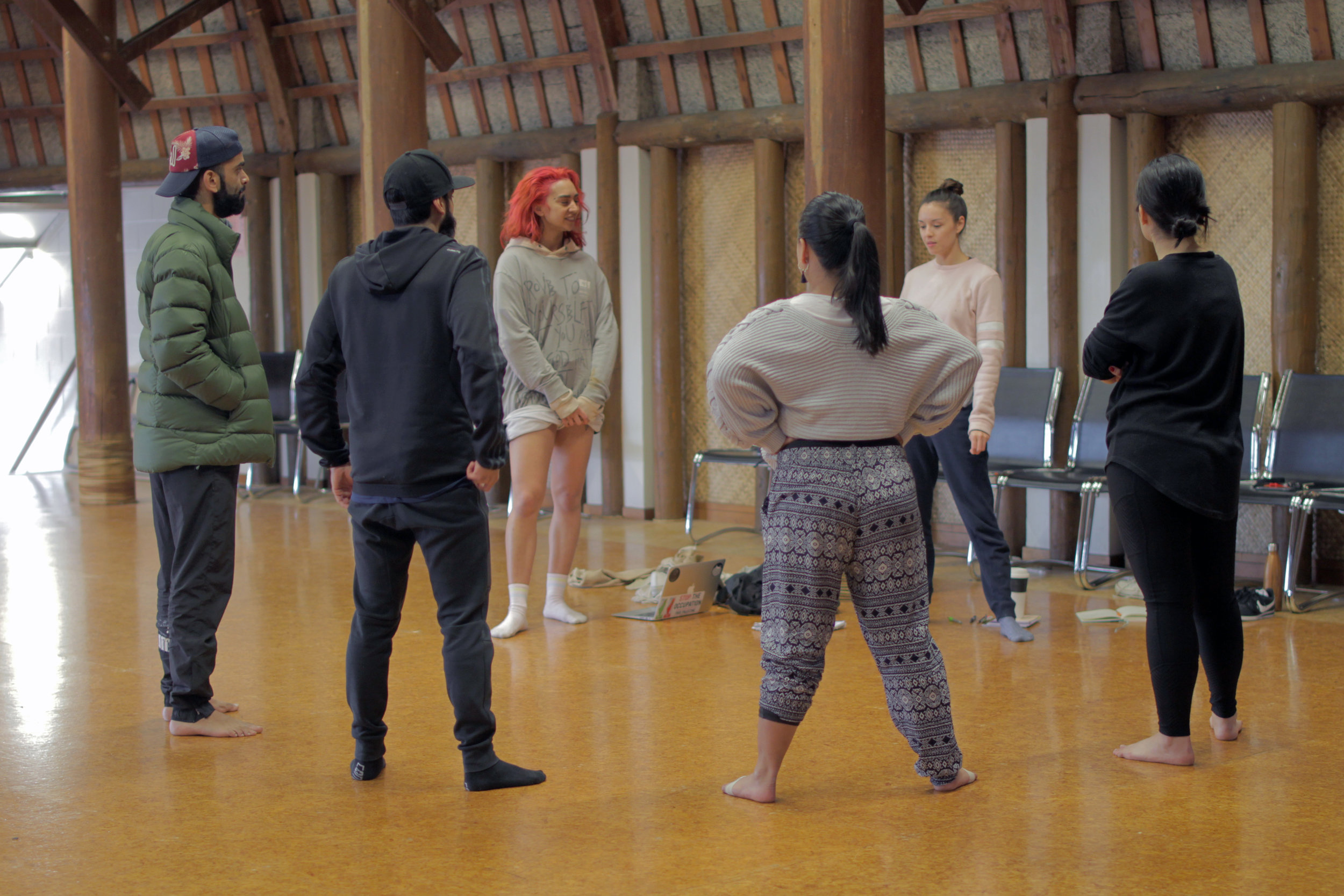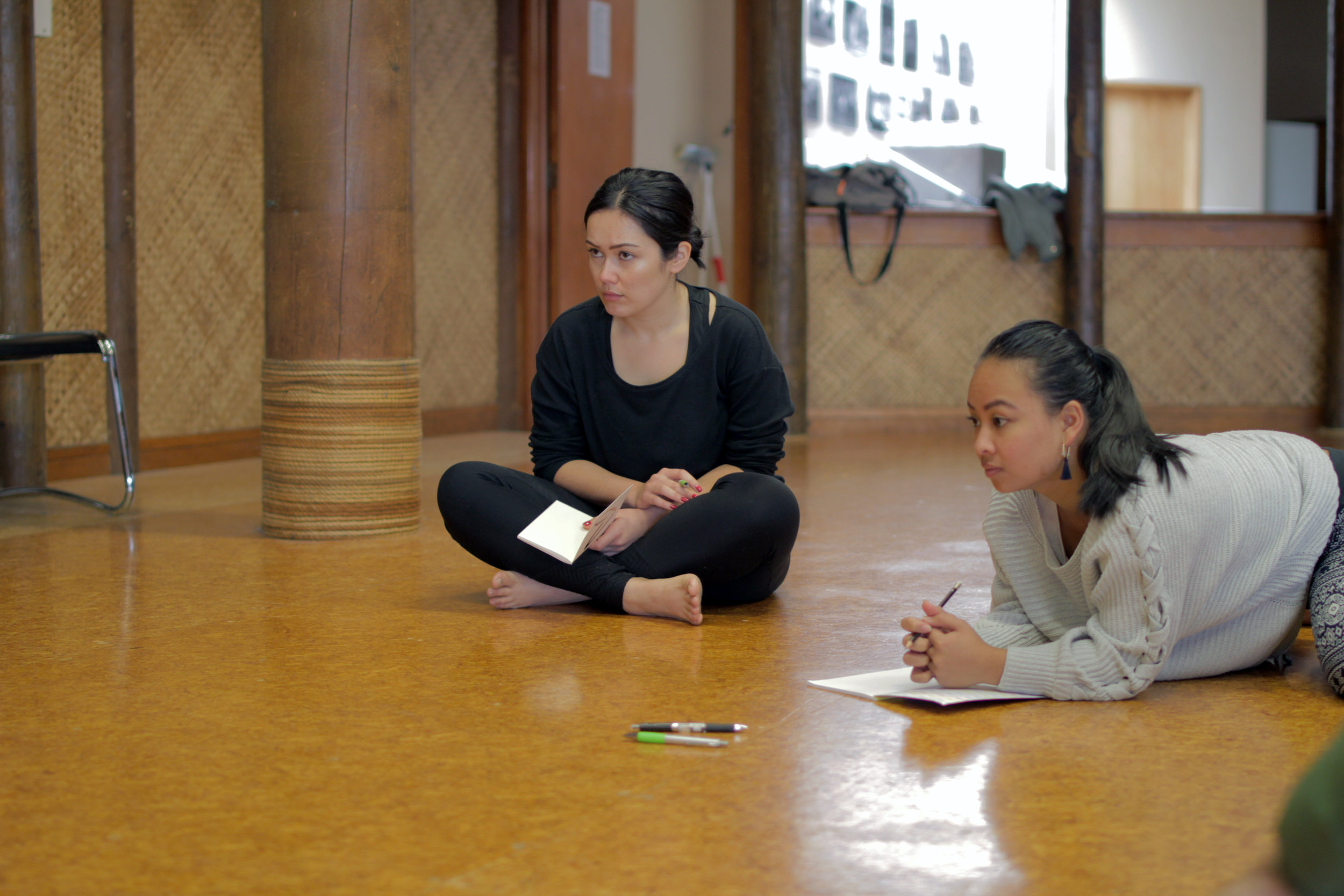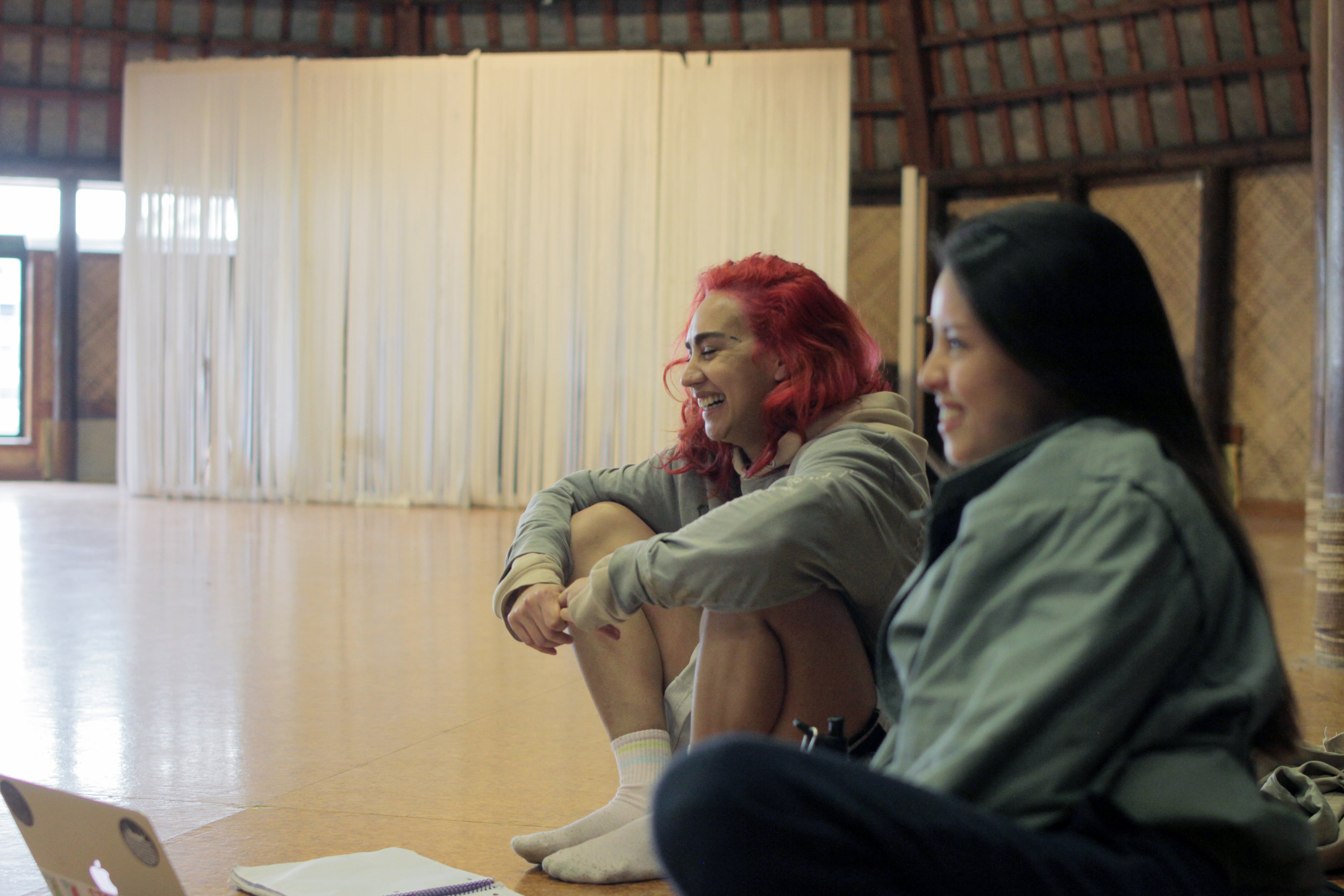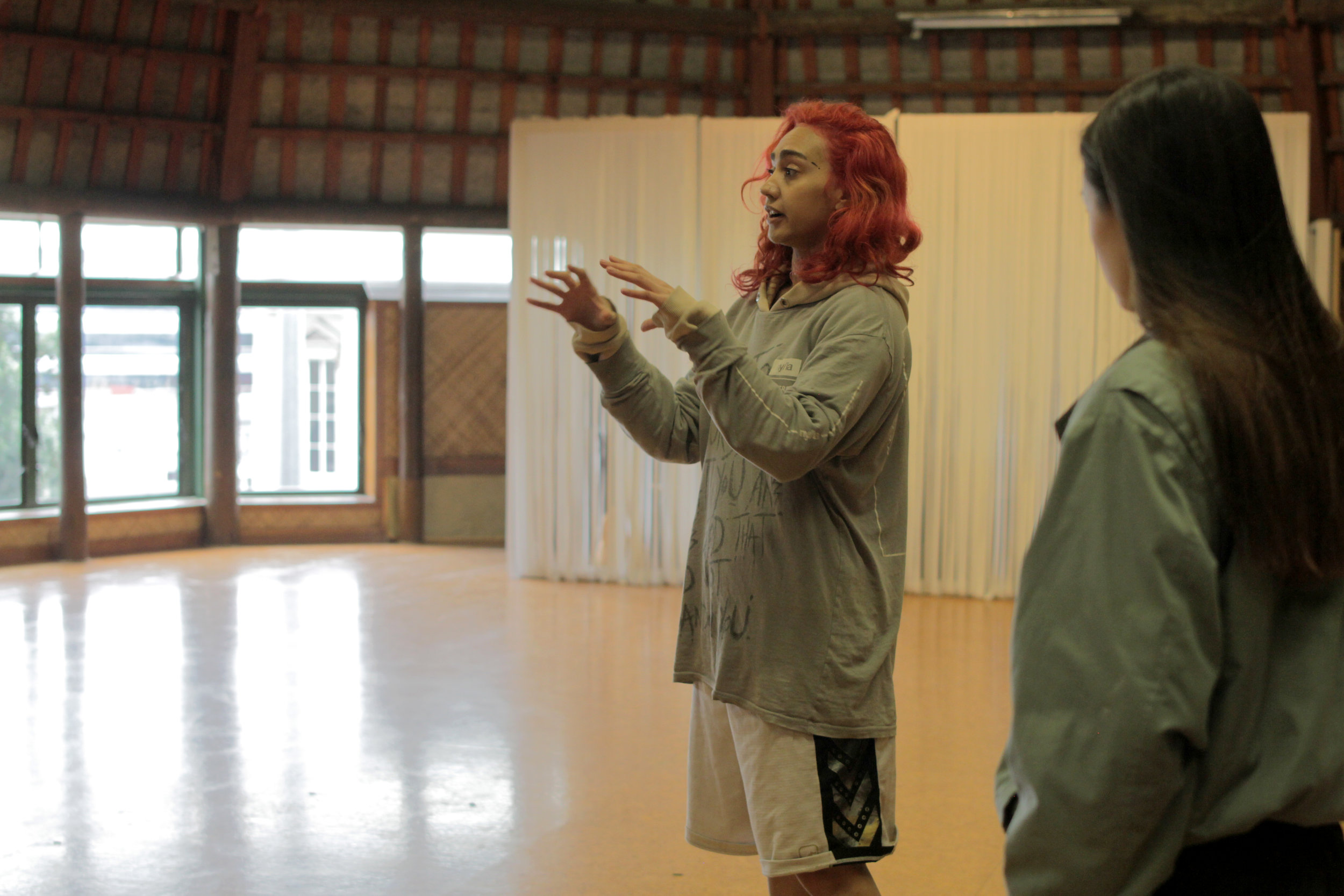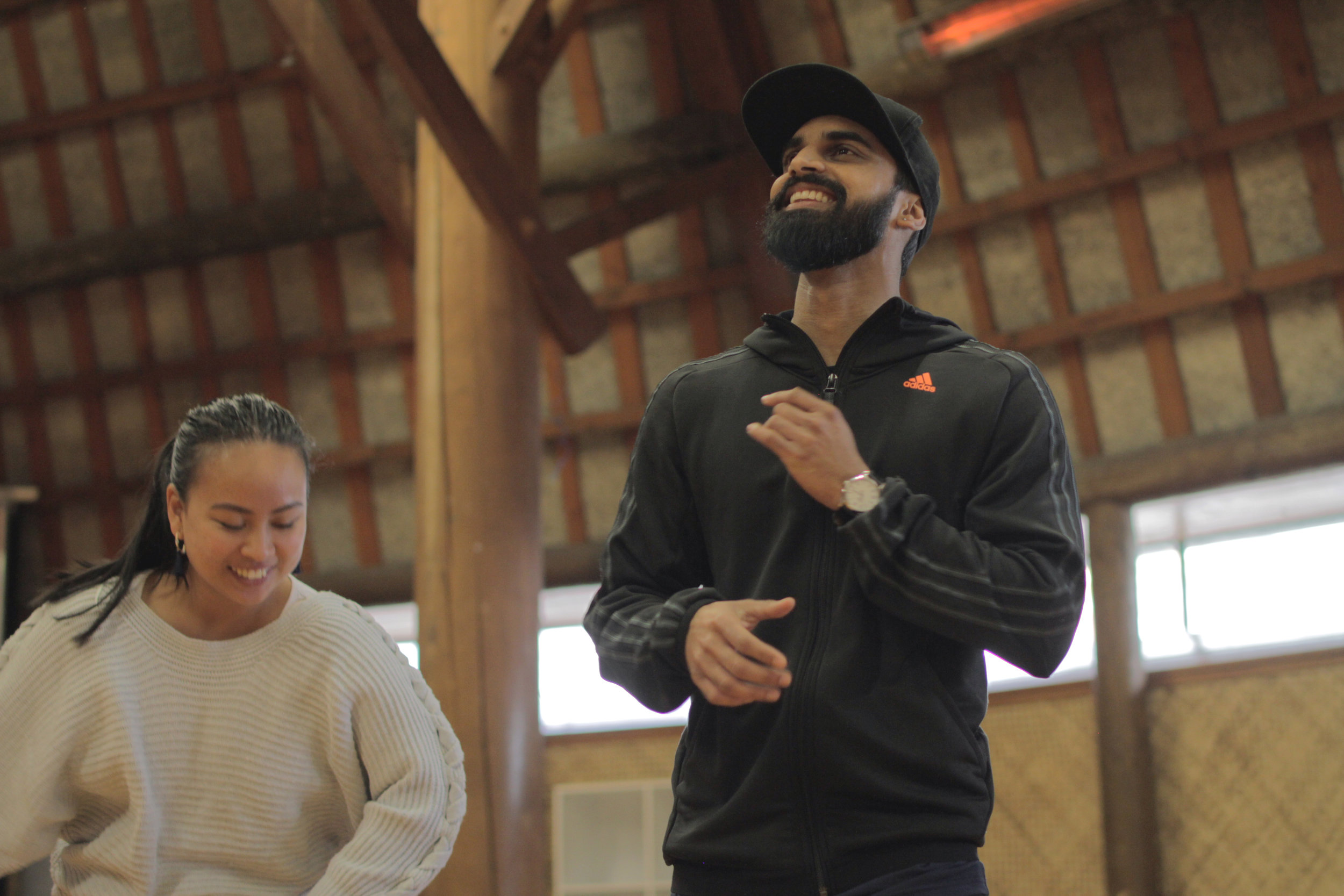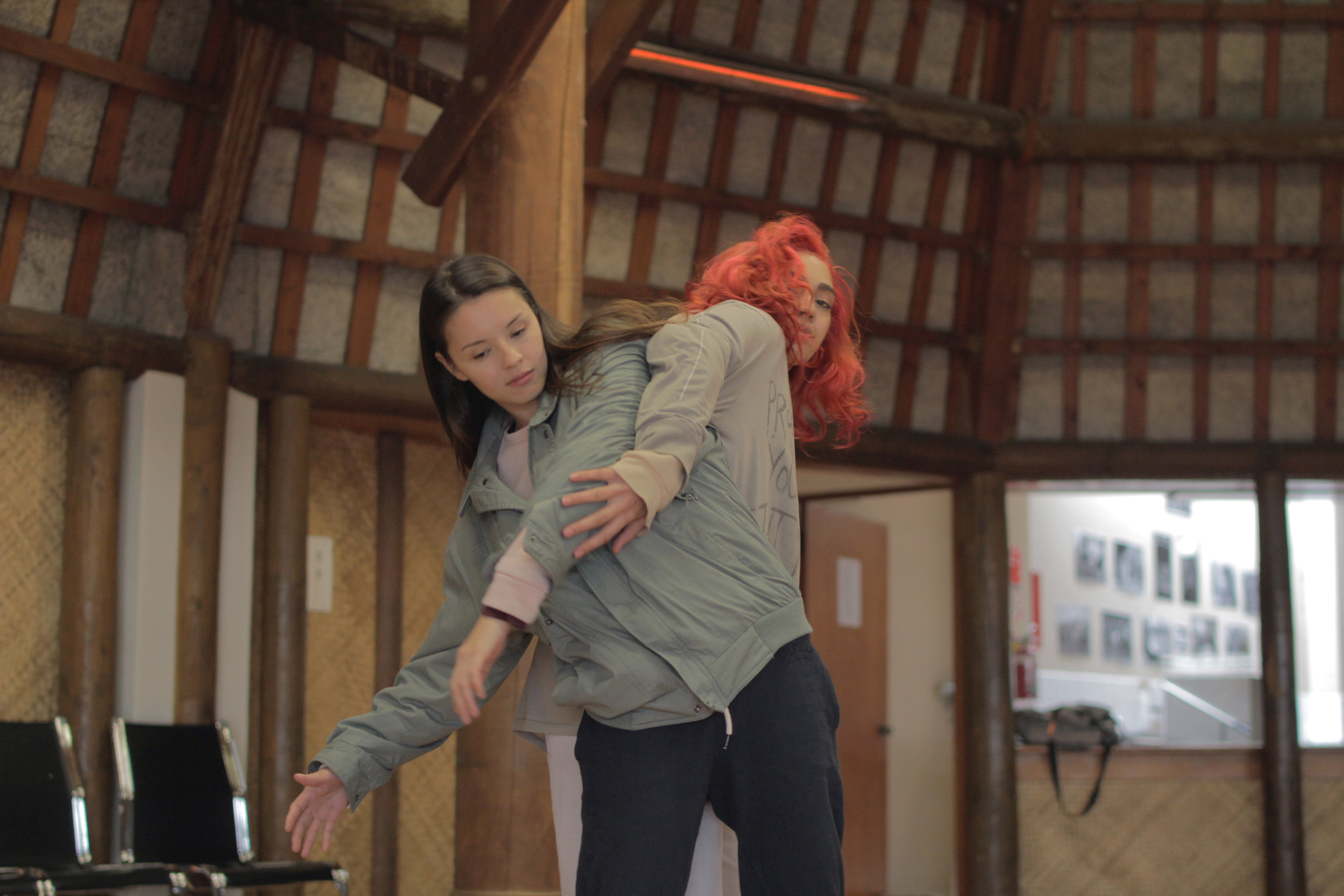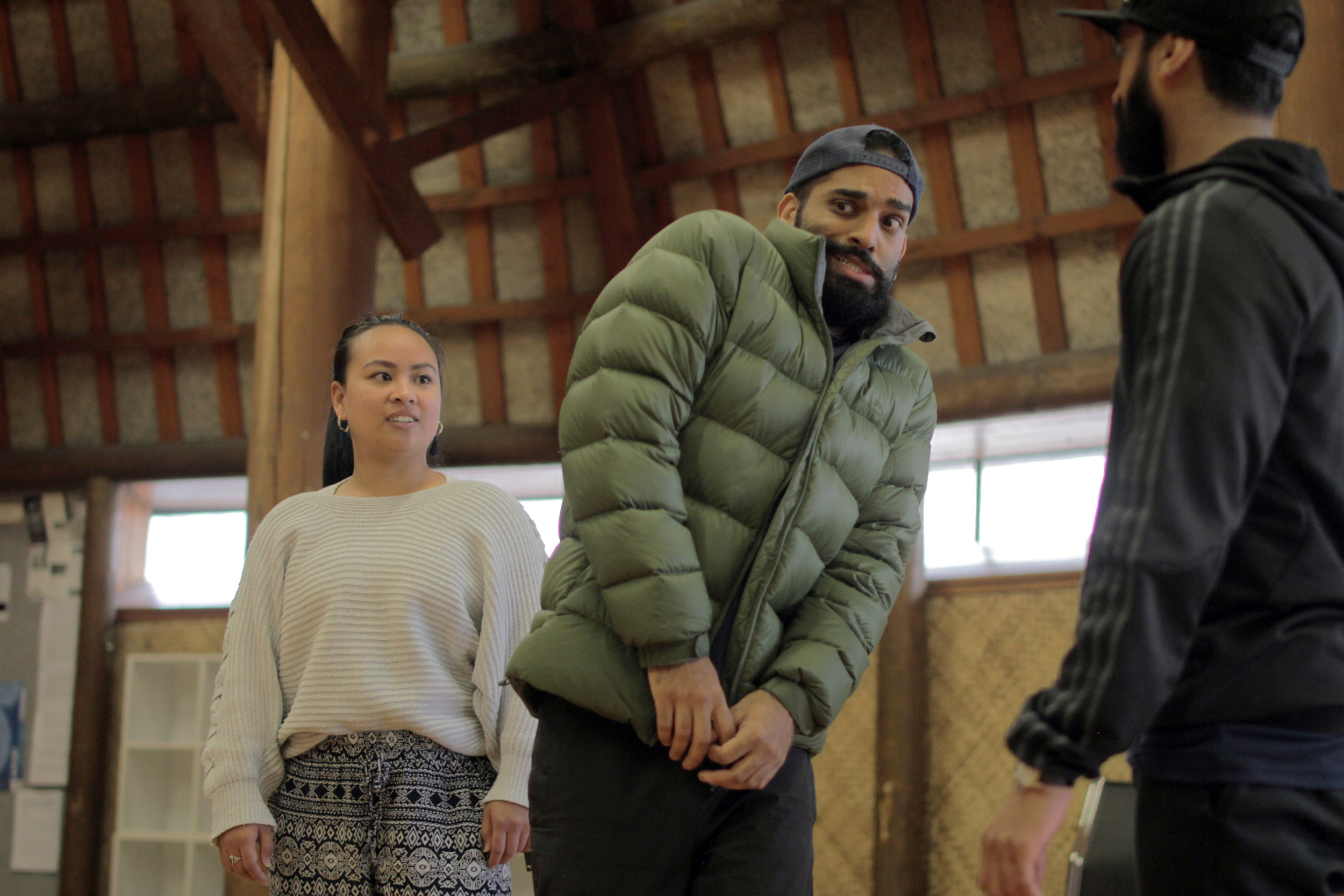“When people think about dialogue around race, they always think it’s angsty, it’s messy and yuck. Yes, it’s all those things, but it can also be joyful and funny and weird and interesting in other ways.”
- Chye-Ling Huang
Asian representation in New Zealand in the age of Crazy Rich Asians
River Lin from the Spinoff interviews Alice Canton, JJ Fong and PAT's own Chye-Ling Huang about representation and the media in Aotearoa.
Check out the full interview here or below.
Crazy Rich Asians has been lauded for its groundbreaking representation of Asian-Americans – but how is Asian representation looking in our own country?
“Why would you actively try and get into a space where no spaces exist for you?” says Alice Canton, an Auckland-based actress and theatre artist. “If I wasn’t creating my own opportunities, those opportunities would just not exist.”
While ‘yellowface’ has long since disappeared from Hollywood, the erasure of Asian stories from our cinema and televisions screen has been far more enduring. Often cast as bespectacled nerds or the exotic “other”, there has been little respite from the dominant narrative of whiteness as the norm, with Asian faces the rare exception – even when the character is explicitly written as Asian.
A recent example of this was the whitewashing controversy surrounding the movie version of the anime series Ghost in the Shell. Screenwriter Max Landis defended the casting of Scarlett Johansson as Major Kusanagi, arguing that there were no “A-list female Asian celebrities” whose star power could translate into high box office numbers.
This is reflected in UCLA’s 2018 diversity report, which found that minorities made up 13.9% of lead film roles in the 2015-16 season, compared to its peak of 16.7% in 2013.
The report also found that, of the scripted TV shows debuting in 2017-18 across all platforms, only 28% of its leads were minorities, and 24% debuted with a largely minority cast.
That isn’t to say things haven’t improved for Asian representation in recent years, with films and shows such as Killing Eve, Fresh off the Boat, Master of None, Kim’s Convenience, The Big Sick and, most recently, Crazy Rich Asians and Netflix cult hit To All the Boys I Loved Before all gaining both critical and commercial success.
Crazy Rich Asians, in particular, is a rare show of force for Asian-American visibility on screen – not only due to its strong US box office (it opens here in New Zealand on Thursday), but also as the first film since The Joy Luck Club in 1993 to feature an Asian-majority cast. The film, about an Asian-American woman meeting her boyfriend’s wealthy Singapore family for the first time, far from perfectly represents the Asian experience (its erasure of South Asian faces has been noted elsewhere), but it does pave a way forward for more nuanced Asian-American representations on screen. It also proves that minority-led films can translate into success at the box office.
The issue of systematic erasure of East Asian faces and stories within the film and television industry hasn’t just rampant in Hollywood but at home, too.
According to New Zealand’s 2013 census, 11.8% of the population identified themselves as Asian. On screen, however, the numbers tell a different story.
Half-Chinese and half-white, Alice Canton often struggled with coming to terms with her cultural identity growing up in the lily-whiteness of the South Island (she was born on the West Coast and grew up in Canterbury).
While her Hakka mother was obsessed with The Beatles and cricket, Canton’s idols growing up were local stars like Shortland Street‘s formidable Dr Grace Kwan, played by Lynette Forday.
“My sisters and I were obsessed with her as kids because she had danced with the Royal Ballet. I grew up idolising her, right through high school to my early 20s, where I was sure I would be cast as her Eurasian bastard daughter.
“She was the only Asian New Zealander on my screen. Her and Jane Yee, who I also used to fangirl over. When I was in sixth form I wrote her an email, which was a big deal because no one emailed back then, telling her I’d written about her in my school speech.”
Opportunities for people of colour have continued to be in short supply, Canton says – the roles reduced to cardboard cut-outs like that of the bumbling sidekick or the ferocious ‘dragon lady’ popularised by the first Asian-American film star, Anna May Wong, in the 1930s.
JJ Fong, who plays Filipina nurse Ruby Flores on Shortland Street, says growing up with Asian media only helped to heighten her sense of difference from an early age.
“It made me think more deeply [about race] because I was in the thick of it and experiencing it, whether that was at auditions using Asian accents or just growing up as a Chinese-Kiwi among a lot of white kids who made fun of my eyes.
“I wasn’t observing the issue – I was the issue.”
Unlike Canton and Fong, the first time Proudly Asian Theatre co-founder Chye-Ling Huang saw an East Asian face and story reflected on screen was Disney’s animated feature film Mulan (1998).
“[Fa Mulan was] really revolutionary when I first saw her as a kid. I was, like, 10 or something and it just changed my life, which is sad when you think about it. It was a cartoon, but it was pretty much the only thing I saw on screen.”
It was years later, in 2009, when Huang experienced a play featuring real Asian faces and stories: Chinese New Zealand director and playwright Renee Liang’s Lantern. The play, which follows a Chinese family struggling with identity after immigrating to New Zealand, would later become Huang’s first play to be performed under the Proudly Asian Theatre banner.
“It’s definitely gotten better now, but growing up, it was… There was just nothing.”
Canton says the problem lies in the perpetuation of damaging stereotypes on stage and screen – compounded further by an already lacking number of roles to be filled.
“When there is a character or casting for someone who is Asian – it’s always Asian, it’s never specified – sometimes, it’s the most broad-stroke, bullshit characterisations imaginable. There are such limited opportunities that when you are the only person, you have to be all those things.”
Huang says part of the problem lies in Hollywood’s whitewashing of Asian stories – and the white actors who perpetuate it by agreeing to portray them.
“There are enough white actors and enough white stories out there to inspire and motivate white people. We don’t need more white stories – we need more Asian stories, we need more brown stories. Anyone who’s looking to take those opportunities away from us has got to be extremely short-sighted to think that it doesn’t matter.”
However, Canton says the characters on screen are merely a product of what goes on behind the scenes, in the writer’s room.
“You’ve got no one to call out on it when her name is Mei-Ling and she’s a lawyer in her 20s, her parents are strict and she just wants to fit in. No one is there to do that in the writing room, behind the camera, in the crew – let alone the visible, on-screen [characters].”
Nathan Joe, an Auckland-based playwright, says the drive to write nuanced Asian characters and stories is often born out of the recognition of its absence.
“The pin-drop moment usually is when you start asking yourself, ‘Where am I on screen? Nowhere, so do I wait or do I produce something?’ You’re driven by that need and that lack.”
For Canton, the “pin-drop moment” was when she started studying drama at high school. Over the years, the theatre artist has written and starred in shows like White/Other and Orangutan, which explores feelings of difference and belonging through performance art.
As well as performing in her own shows, Alice has collaborated with others who share her desire to change narratives of race, such as the makers of Proudly Asian Theatre’s 2016 show, Call of the Sparrows. The show borrowed heavily from elements of Chinese history, values and superstitions, and featured an all-Asian cast.
Perlina Lau starred in the comedy web series Flat3 and its TVNZ spin-off Friday Night Bites. Written and directed by Roseanne Liang, Flat3 (2013-14) came about after Lau and fellow actresses Ally Xue and JJ Fong created a theatre show, before eventually finding their way to the web.
“The whole Asian thing was kind of just a bonus. We didn’t intentionally set out to do that, but at the same time, it gave us a point of difference. From the get-go, we looked different – you didn’t see many all-female casts doing comedy. It didn’t get much more ‘minority’ than that.”
Like Canton, Lau says the women didn’t “see ourselves out there or in any context”.
“We thought, ‘Let’s be a version of ourselves. Let’s appeal to people like us – all the 20-year-old Kiwis that we see, let’s put them on screen with an Asian face.'”
Indeed, part of Flat3‘s appeal is its authentic portrayal of young adults navigating grown-up life, helped by its diverse array of writers behind the scenes.
“Fair enough that you write what you know – but get diverse writers in, because they’ll be writing what they know and that’ll be diversity. It’s a conscious decision because it’s not a level playing field.”
Chye-Ling Huang and James Roque co-founded Proudly Asian Theatre as a way of levelling the playing field without relying on the strained budgets of film and television.
“We didn’t have anywhere else to go,” says Huang. “We had no path to follow; there was no one we could really attach ourselves to that could help us get that leg up in the industry. In the end, we connected with Renee Liang after we did our first show and she really helped us.
Their more recent projects, Asian Men Talk About Sex, was made after receiving funding from Loading Docs, a platform which helps producers launch short documentaries.
The documentary, which features Yoson An who is set to star in the live-action remake of Disney’s Mulan, came about as a means of self-reclamation for Asian men’s sexuality in a way that wasn’t confrontational but “celebratory and empowering” in its conversations about race.
“There’s a lack of representation in New Zealand for Asian men of any kind,” says Huang. “It’s slim pickings out there and we really wanted to make something that was tipping the scales back in Asian men’s favour.”
Her work – from the Chinese opera-inspired Call of the Sparrows to the melodrama of David Henry Hwang’s FOB – addresses the messiness and dissonance of identity politics without being confrontational.
“When people think about dialogue around race, they always think it’s angsty, it’s messy and yuck. Yes, it’s all those things, but it can also be joyful and funny and weird and interesting in other ways.”
They’re still difficult conversations to have, but the dialogue around race has improved in recent years, says JJ Fong, who co-starred with Lau in Flat3.
“It’s definitely gotten a lot better in the last five years with casting, being open to other ethnicities and seeing them in a different light, rather than ‘That’s just an Asian or Māori role.'”
However, despite her early experience with racism and what may be seen as its continuation through stereotypical casting practices, the actress isn’t quick to lay blame on the writers and producers alone.
“We can write articles about it, we can whine about it on Facebook – but the fact of the matter is, if you’re not in there doing it, creating it for yourself, then things won’t change because people won’t see it”.
“It’s about fostering and mentoring talent as well,” adds Huang. “Often people will say, ‘I just don’t know any people of colour, women writers or Asian writers,’ but you have the responsibility as a person in a position of power to turn the tide. It’s not going to happen on its own and the work will be better for it.”
